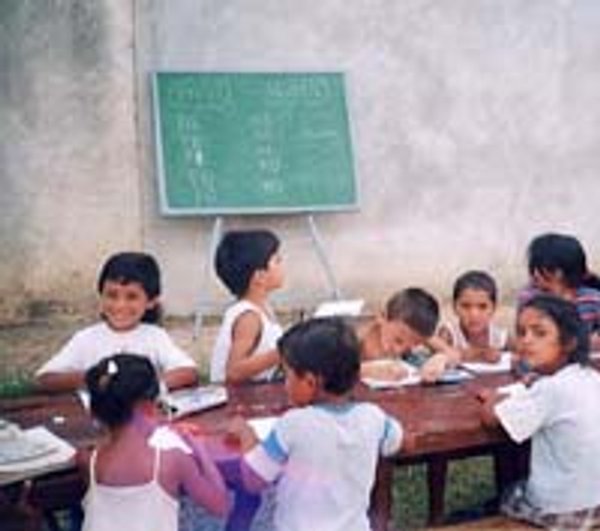The city of Santo Tomé, in the province of Corrientes, Argentina, has a standard of living quite a bit lower than the country’s average. In recent years the situation has changed a little, but in the 80’s 43% of the young people were forced to leave the city to study or seek work. Less than a third returned. In 1987, some university students decided to figure out how they could help the situation. “We wanted to contribute something, so we organized some social development camps,” recalls Cecilia Coimbra.
St. Josemaría, Opus Dei’s founder, taught that work could be a means of union with God and an instrument to improve the world. The original organizers of the Santo Tomé development projects took these ideas to heart, as have more than 1,000 young people who have volunteered since then, working in hygiene and vaccination campaigns, literacy programs, and first aid.
The beginnings
One of the objectives that the first volunteers set was to reach the most needy families, offering them health and medical aid. They also spent a lot of time telling neighbors, colleagues, and friends about the problems in Santo Tomé, and explaining the solutions that they meant to put into practice. With this effort, in a few months they obtained contributions in cash, clothes, medicine, school materials and books.

Visiting the families, the volunteers could see that what they were doing was insufficient, because their work lacked continuity. “We realized that it was necessary to conduct the aid programs with a more professional vision,” explains Coimbra. “Good will was not enough for in depth solutions.” In fact, they were working only during some seasons, in the summer and winter holidays, with 10- to 15-day programs. As a result it was impossible to ensure the evolution and the efficacy of the projects begun. Therefore, they decided to put their projects under the auspices of an NGO. They obtained the support of a non-profit organization, the Instituto de Capacitación Integral de Estudios Domésticos (ICIED), and with ICIED’s help they began instructing volunteers and designing programs of social action that could be done in cooperation with university students.
Programs for children and adults
Some university women then organized a permanent commission to tend more efficiently to the basic needs of the population: nutrition, healthcare, and literacy. As a first measure, they decided to set in motion several information campaigns on educational and health themes. Through the past 16 years, 3,000 children and 8,000 adults have participated in these campaigns. To carry out this and other tasks support was necessary from the government and businesses, not to mention the contributions of generous individuals.
“One of the results of which we felt most proud at the beginning,” says Coimbra, “was the vaccination campaign that we carried out the year there was a national measles epidemic. In the end there was only one case registered in Santo Tomé.”

Fr. José Alarcón, the parish priest, recalls the beginning of another program, the kindergarten: “One of the first works undertaken in Santo Tomé was a kindergarten, that has been going for almost ten years now. When it started, only five children came, because the mothers, a little skeptical, said: ‘And later what?’ But, thanks to the efforts of volunteers, the kindergarten was transformed soon into a school, which has more than 300 children now.” Further development of the school, which in a couple of years will grow to 500 students, has been possible thanks to the support of many benefactors.
With the intention of giving continuity to the work carried out in the school, a group of mothers also founded a youth club, “The Lapachos,” which is named after a tree found in many area plazas and parks, characterized by its bright flowers and early blooming. Quite a few girls turn out for the club every week, where they have activities such as silk-screening, cooking, and handicrafts, and also attend programs of personal and spiritual development.
The most ambitious program
Among all the programs developed in Santo Tomé, the “Adult Literacy Course” stands out in a particular way. Florencia Daura, María Aguilar and Carolina Montero, who run the program, have authored a Contextualized Literacy Manual used in it. Year after year, people of all ages learn how to read. Elena, for instance, wrote her first letters at the age of 75, after attending a literacy course.
For more information or to make a donation, contact:
ICIED
Reconquista 661 - 7B
C1003ABM Buenos Aires
Argentina
iciedasoc@house.com.ar
